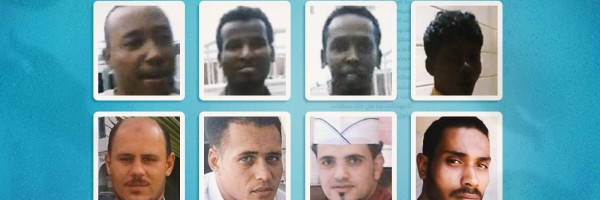Why it is important the Saudi Arabia signs and ratifies the UN Refugee Convention?
Since the beginning of the civil war in Syria in 2011, more than 45 per cent of the Syrian population has been displaced. Of the 6.5 million displaced, 4 million have sought refuge in other countries. 95 per cent of these are predominately in five countries: Turkey, Lebanon, Jordan, Iraq and Egypt. But the six wealthy Gulf countries, Saudi Arabia, Qatar, the UAE, Oman, Kuwait and Bahrain have offered to receive exactly zero Syrian refugees, nor are they signatories to the UN 1951 Refugee Convention, the UNHCR.
The implications of the Kingdom of Saudi Arabia not being party to the UNHCR are huge. The Convention outlines the definition of a refugee, their special rights, but also places legal obligations on the State to those who have been afforded asylum.
In accordance with the UNHCR, a person is classified as a refugee when: “…owing to well founded fear of being persecuted for reasons of race, religion, nationality, membership of a particular social group or political opinion, is outside the country of his nationality and is unable or, owing to such fear, is unwilling to avail himself of the protection of that country…”
This definition is often confused in everyday language with the term ‘migrant’ or ‘economic migrant’ where individuals move to another country for economic reasons, such as better job prospects or the desire of wanting a higher standard of living in another country.
A spokesman for the UNHCR has said there are around 500,000 Syrians livings in Saudi Arabia but they are not classified as refugees. ALQST believes that they have only been granted work visas or permits for them and their families, thereby being classified as ‘migrants’ and not as ‘refugees’. It is feared that once their work visa or employment contract has expired or are unable to renew it, they face the prospects of being detained and deported back to Syria or another country such as Turkey or Lebanon. Countries that are party to the UNHCR cannot detain or forcibly return the individual to the country they are escaping, a right not afforded to those Syrians currently residing in Saudi Arabia.
The UNHCR also protects individuals that have entered a country through unconventional channels, such as those used by the hundreds of thousands of individuals coming into Europe by boats. As the Kingdom has not signed and ratified the UNHCR, these individuals that attempt to go to Saudi Arabia through these methods face being detained, tortured while in detention (as previously documented by ALQST) and then deported back to Syria.
The UNHCR also states that those who have received asylum must be granted identity papers and travel documents to allow them to travel outside the country. They would receive the same treatment as nationals such as freedom to exercise their religion, free access to courts with legal assistance, access to education and public benefits, social security and so forth. Refugees also receive favourable treatments in relation to engaging in wage-earning employments and the right to own property.
The Ministry of Foreign Affairs of Saudi Arabia claim that the Kingdom has received around 2.5 million Syrians since 2011 and they have the freedom to move around the country and have been given legal residency status. They also receive free medical care, freedom to join the labour market and access to public schools and universities. However, ALQST is gravely concerned about the future for Syrians residing in Saudi Arabia and whether the Kingdom will uphold their current policy. The only way to secure the safety and well being of Syrians currently residing in Saudi Arabia is by the Kingdom signing and ratifying the UNHCR immediately.
ALQST strongly urges the Kingdom of Saudi Arabia and all other Gulf states to sign and ratify the UN Refugee Convention with immediate effect and without any reservations. Saudi Arabia and the Gulf nations have a moral duty to protect, receive, and afford equal rights to refugees from neighboring countries as outlined by the 1951 UN Convention on Refugees. They must not assume or allow themselves to believe that their duty to their neighbours has been met through monetary values only.




